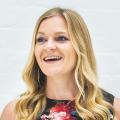
How important are books in early childhood? What kind of books are best and at what speed should children progress to more difficult reads? Maryanne McGregor EYFS, MBA (Deputy Manager at LEYF’s Townmead Community Nursery), guides us through the tricky business of reading with children
What do children receive from contact with books? I would like to argue that children get much the same things out of books as adults do. Ask any older lover of books what they like about them and they will tell you it is the adventure, the escape from the mundane, and a chance to explore new worlds.
It is the poetical sound of the language in the shape of spoken word as it is read – not to mention the exposure to visual variety or beauty, even if these words and pictures are experienced abstractly, in the reader’s own mind.
In addition, through stories, young children are exposed to new sounds, words and phrases which they can try out, copy and add to their own vocabulary. This not only adds joy to their time at home or nursery but prepares them for the first steps of their academic life.
It will lead them to become more confident speaking and singing – even to a crowd of their friends beside a supportive preschool teacher – which in later years can evolve to such things as theatre, presenting, debating or giving speeches – and it will additionally lead to learning to read and write.

As a parent, carer or educational professional, you may be asking, which type of book is appropriate for different stages of early life?
Reading will lead them to become more confident speaking and singing, which in later years can evolve to such things as theatre, presenting, debating or giving speeches’
For babies and very young children, I recommend showing them small books which have hardwearing, cardboard pages. The books should have simple, single words or images which you can point to and speak aloud so that the child is hearing these whilst seeing the image, allowing him or her to learn words very quickly.
Some books come with parts the child can touch and feel, with textures of such things as different cloth or indented cardboard, or even Velcro or sandpaper; other books have lift the flap elements. These participatory elements can aid in drawing the child’s attention but are not absolutely necessary for a book to have.
LEYF knows the importance of reading with young children
As they become a little older, children can progress to bigger books in which they learn more words or alternatively, books in which they are exposed to two words together at a time, or very short sentences.
During this time whilst they are very young, children are also learning to hold books. For this, smaller books tend to be easier for the younger children to handle than the large ones.
‘The choice of books should be largely based on what words the children are ready to learn. Don’t be afraid to stretch the children’
The choice of books should be largely based on what words the children are ready to learn. Don’t be afraid to stretch the children, either. However if the book is too far ahead of their level of comprehension then the children may balk, staring into the far-away, fidget and even wander off.
There are an extensive range of books on the market for children and useful lists about the various types can be seen here. As an early years professional for many years, a couple of firm favourite books come to mind:
Going on a Bear Hunt by Michael Rosen is a children’s classic, and older children can participate in not only the actions – such pretending to walk through ‘swishy swashy grass,’ and ‘thick oozy mud’ – but also the words, as they memorise them over time and join in with the storytelling Freddie and the Fairy by Julia Donaldson. At Townmead Community Nursery, a setting which I help to manage in Fulham, we have an initial settling period of three days followed by a longer period of six weeks. Settling in can bring about periods where the child is feeling out of sorts and this is a book that many children request during this time. Freddie is not pronouncing his wishes correctly, causing his fairy to grant him the wrong wishes.
The wonderful quote, ‘people say that life is the thing, but I prefer reading’, is one that a book lover will understand, but there comes a time when reading is over and one must get back to ‘real’ life.
In the early years, books are no more or less important than any other part of our wide ranging early years curriculum. But for many they are a starting point, for others an inspiration and for some, a sanctuary.
The London Early Years Foundation (LEYF) is a family of 38 community nurseries across London. Find your nearest nursery here: leyf.org.uk



Comments: Our rules
We want our comments to be a lively and valuable part of our community - a place where readers can debate and engage with the most important local issues. The ability to comment on our stories is a privilege, not a right, however, and that privilege may be withdrawn if it is abused or misused.
Please report any comments that break our rules.
Read the rules here